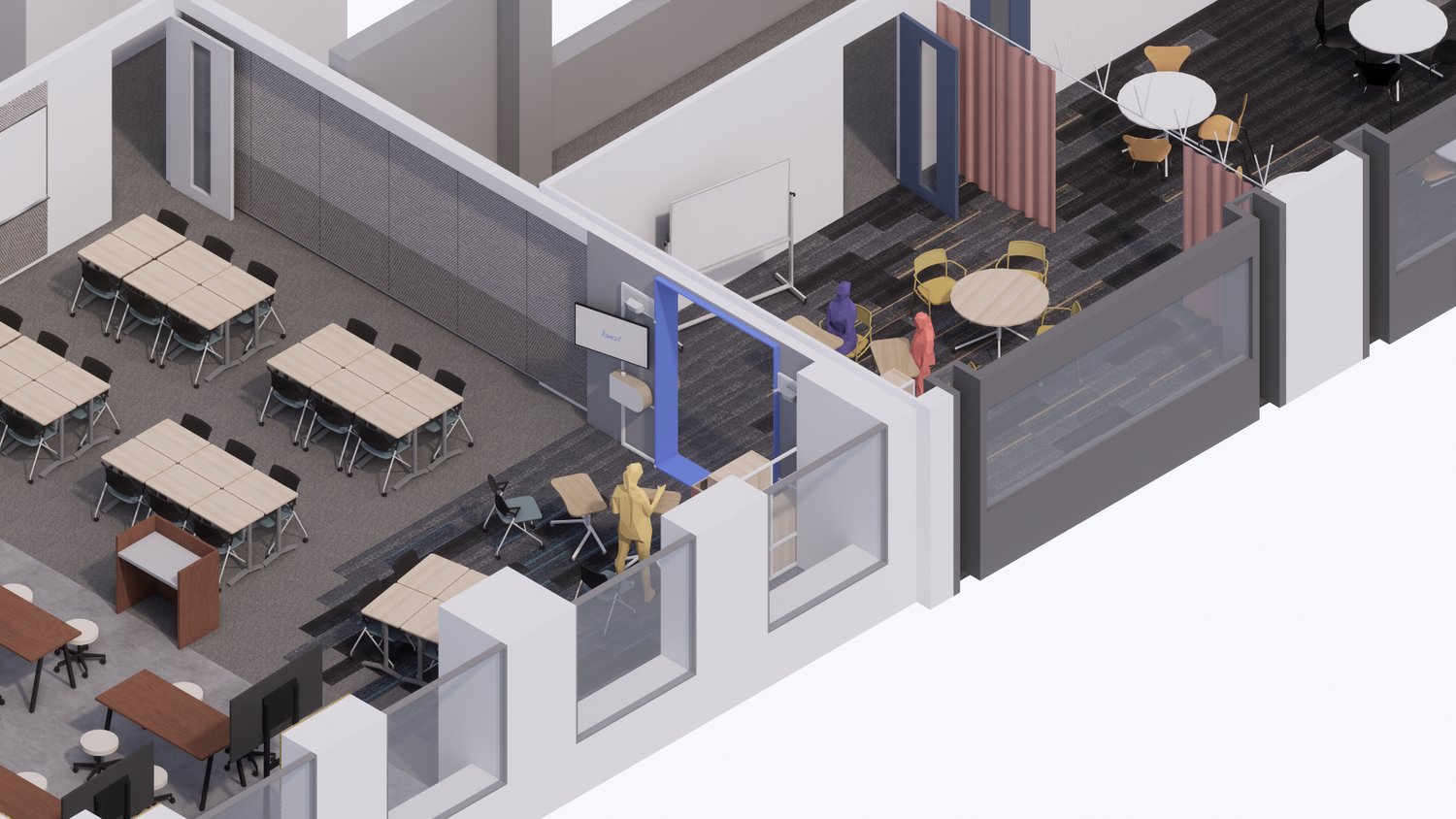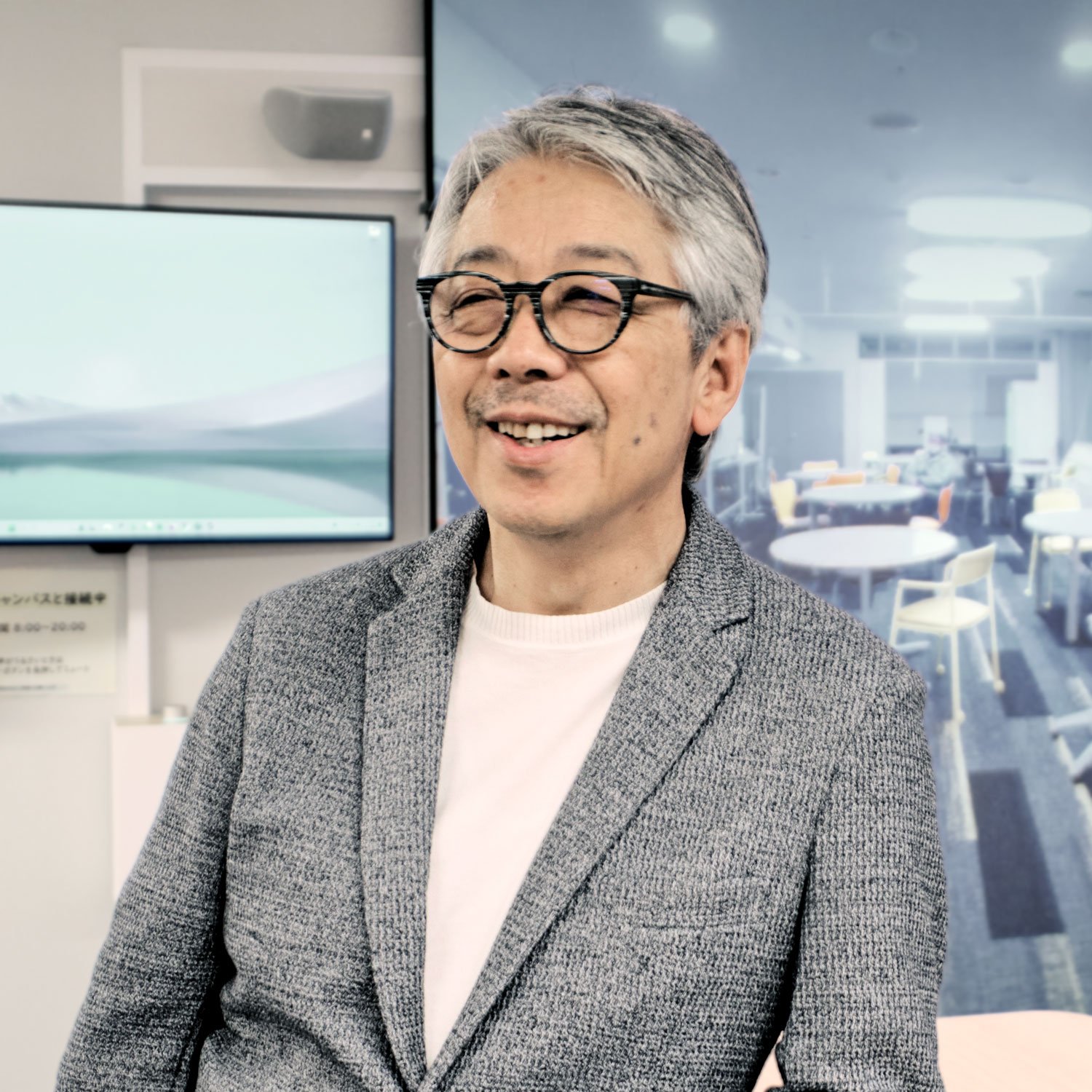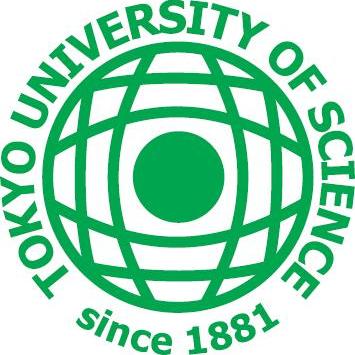The Tokyo University of Science houses its first-year students in the Department of International Digital and Design Management(IDM) on a special campus in Oshamambe, Hokkaido. This remote setting gives them the opportunity to learn the Scandinavian style of co-design, where they gain practical skills by solving local issues. But this location separates them from their upperclassmen on the Fujimi Campus in Kagurazaka, Tokyo by a full 960 km.
Thinking of ways to foster better communications across this huge distance, TUS’s IDM department has installed tonari between the two campuses to better connect the student bodies.
College is as much about social interaction as it is about studying, so TUS has set up tonari in two very communal spaces: a lounge in the Oshamambe dorm and a room in the Fujimi School Building used daily by the IDM department. The Oshamambe space is a designed to be a “hangout” that encourages spontaneous interaction and dialogue, while Room 306 of the Fujimi Campus, which is used for co-design project meetings, club activities, and parent-teacher gatherings, has the tonari set up to seamlessly blend in with the existing layout. The goal is to help first-year students build social connections with their sempai before going to Tokyo, allowing them to ask for guidance as if they were talking casually in a student lounge. Meanwhile the older students can use the space as a way to connect back to Oshamambe and continue thinking about regional issues from a longer-term perspective.

A freshman told us, “We live in the dormitory, so on weekends, I sometimes use the ‘tonari screen’ to sing or dance karaoke, which is quite fun. My classmates, seniors, and even teachers who happen to pass by often join in. I'm happy to have the opportunity to casually get to know new people, talk about my hobbies, and ask about class assignments.” A third-year student on Tokyo side said, "There are a few international students from China, and we’ve promised to celebrate our kōhai's birthday using tonari next week! Unlike Zoom or other platforms that only show faces, tonari gives the feeling of being in the same room, so I'm excited to spend time with him on his birthday like this”
The professors have taken an additional interest in tonari as a further source of intellectual stimulation. Dr. Morimoto told us, “tonari helps pose the question, ‘What is communication?’ and I’m looking forward to what the students discover in using this tool that helps them transcend distance."

Department head Professor Junichi Iijima added:
“This department aims to develop leaders who can ‘connect’ humans from different backgrounds and specialties to solve difficult problems in an age of uncertainty. Innovation tends to rise in situations that are highly spontaneous, and we hope that the dialogue and chance encounters with tonari will help us towards our goal.” IDM Professor Iijima
tonari promises not only to bring IDM’s two campuses together but perhaps provide a model of how rural locations can better connect to the capital and fight depopulation. Remote areas like Oshamambe are excellent places for college campuses, and tonari can help overcome the potential downsides of social isolation. For the youngest IDM students, tonari will be a valuable tool to strengthen their bonds with older students and professors in Tokyo, and as they move into their second year, they’ll be able to keep connected to the people they met in Oshamambe and their original projects.
About Tokyo University of Science
Tokyo University of Science was founded in 1881 as the Tokyo Physics Training Institute. Today it is Japan’s leading private university for science and engineering. In April 2021, the Faculty of Business Administration founded an International Design Management course to cultivate knowledge of digital technology that will be essential for management in the future and develop innovative leaders with design skills, creativity, and an international mindset.
Similar use cases
- Co-Working Lab WELAGO Initiatives for regional revitalization | Promoting diverse ways of working between urban and rural areas
- tonari lab: tonari’s research platform Equal opportunities beyond generations, distances, and disabilities

